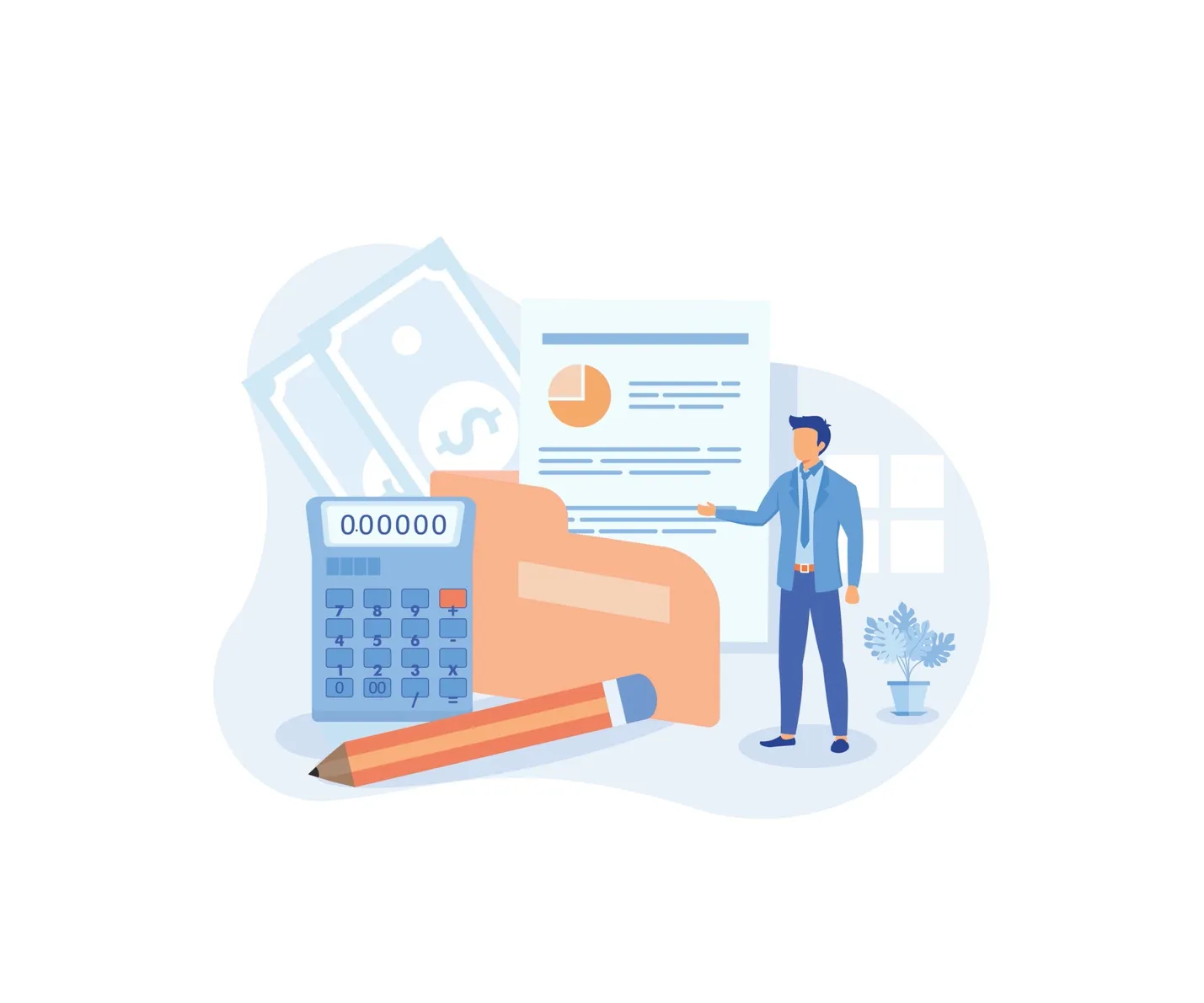When to Hire a Debt Collection Lawyer for my Business?
Effective financial management is at the heart of any thriving business.
Maintaining positive cash flow ensures smooth operations and provides the resources needed for growth. However, businesses frequently encounter clients who fail to pay their invoices on time or refuse to honour contracts.
This situation can lead to cash flow challenges, operational disruptions, and increased stress for business owners. In such circumstances, hiring a debt collection lawyer can be an invaluable resource.

| In this article, SME Lawyers explains what debt collection lawyers do, when to hire them, and the benefits they bring to a business facing unpaid debts! |
|---|
What Is a Debt Collection Lawyer for Businesses?
A debt collection lawyer for businesses is a specialized legal professional who assists companies in recovering outstanding debts in an efficient and lawful manner.
Unlike traditional collection agencies that often rely on repetitive reminders and persistent communication, debt collection lawyers bring a comprehensive understanding of legal procedures and strategies. This expertise enables them to manage more complex debt recovery cases, resolve disputes, and initiate formal legal action when necessary.
Their involvement ensures that businesses can pursue unpaid debts while remaining compliant with legal standards and safeguarding their financial interests. These lawyers ensure that the debt recovery process is conducted in an effective, lawful, and professional way.
Debt collection lawyers can represent businesses in a variety of capacities, such as:
Drafting Demand Letters:
One of the most common initial steps in the debt recovery process is drafting a demand letter. A debt collection lawyer can prepare this formal notice, which clearly states the debt owed, the nature of the obligation, and a deadline for payment. While businesses may issue their own reminders, a demand letter drafted by a lawyer carries more weight.
The official nature of a lawyer’s signature and the potential implication of legal action often prompt debtors to take such letters more seriously. This step can sometimes be enough to encourage payment, allowing businesses to avoid further legal action and reducing the time and resources spent on chasing down debts.
Negotiating Settlements:
When an amicable resolution is possible, debt collection lawyers act as mediators between businesses and their debtors as well as between businesses and their creditors. They leverage their legal expertise and negotiation skills to create repayment or settlement plans that accommodate the interests of all parties. This process may involve:
| Aspect | Explanation |
|---|---|
| Reducing interest rates | Debt collection lawyers can propose reducing the interest rate on outstanding debts to make repayment more feasible for debtors and encourage creditors to agree to a structured plan. For debtors, a reduced interest rate eases the financial burden, making them more willing to comply with payment terms. For creditors, it can lead to quicker recoveries and reduced risks of complete default. |
| Extending payment terms | Lawyers may negotiate extended payment periods that align with the financial realities of debtors while providing creditors with a clear schedule for debt recovery. This approach ensures that the debtor can meet their obligations without severe strain and that creditors receive payments in an organized manner. Such arrangements can prevent financial disruptions and promote stable cash flow for both sides. |
| Setting up instalment plans | Implementing instalment plans can divide the total debt into smaller, periodic payments that suit the debtor’s budget and financial capabilities. This method increases the likelihood of consistent repayment and successful debt recovery. For businesses dealing with creditors, instalment plans can show a commitment to debt repayment and foster goodwill, improving long-term business relations. |
| Drafting legally binding agreements | Debt collection lawyers formalize settlements in legally enforceable agreements that set out the terms of repayment, deadlines, and potential consequences for non-compliance. Such agreements protect both businesses and their counterparties, ensuring clarity and reducing the possibility of future disputes. For businesses as creditors, this guarantees hat their rights are safeguarded; for businesses as debtors, it provides clear expectations and a framework for compliance. |
| Encouraging open communication | Debt collection lawyers facilitate transparent dialogue between businesses and their debtors or creditors. This fosters trust and cooperation, encouraging both parties to adhere to the agreement. Open communication allows for early identification of potential issues and proactive solutions, minimizing disruptions to the settlement process. |

By promoting collaboration and drafting sound agreements, debt collection lawyers help businesses reach amicable resolutions, avoiding the costs and time associated with litigation. This strategic approach supports maintaining positive business relationships and achieving efficient debt recovery.
Pursuing Legal Action:
If initial attempts to recover the debt fail, a debt collection lawyer can escalate the matter by taking legal action. This step involves filing a lawsuit to seek a court judgment that compels the debtor to pay the outstanding amount. The lawyer will handle all aspects of the case, from preparing the necessary documentation to presenting the evidence in court. This includes:
- Gathering invoices
- Collecting contracts
- Organizing correspondence
- Compiling other pertinent records that demonstrate the validity of the claim
The lawyer’s role also includes representing the business during hearings, advocating for their client’s interests, and addressing any defences raised by the debtor. Initiating legal proceedings can be complex, and having an experienced debt collection lawyer ensures that the process is navigated effectively.
This support not only increases the likelihood of obtaining a favourable judgment but also minimizes potential pitfalls that could result in delays or negative outcomes.
Enforcing Court Judgments:
Securing a court judgment is an important milestone, but it does not always guarantee immediate payment. Some debtors may still resist fulfilling their obligations, even after a judgment has been rendered. In such cases, the debt collection lawyer shifts their focus to enforcement strategies. These may include:
- Garnishing the debtor’s wages
- Placing a lien on their property
- Seizing assets to satisfy the debt
Each of these methods must be carried out in accordance with the law, requiring meticulous attention to legal procedures and regulations. Debt collection lawyers possess the expertise to execute these actions effectively, ensuring that businesses receive the funds they are owed without encountering further complications.
The enforcement process can be challenging, especially when dealing with uncooperative debtors, but a skilled lawyer knows how to navigate these situations and take the necessary steps to achieve a successful outcome.
Providing Legal Advice on Debt Prevention:
Beyond debt recovery, a valuable role of debt collection lawyers is offering advice on how businesses can prevent future financial issues related to unpaid debts. This often involves helping businesses establish strong credit policies and contract terms.

Debt collection lawyers can assist in drafting comprehensive contracts that outline payment terms, interest on overdue payments, and penalties for late payments. These agreements not only serve to protect the business’s interests but also provide a clear framework for financial transactions, reducing the risk of misunderstandings or disputes.
Additionally, debt collection lawyers can guide businesses in implementing effective due diligence practices when extending credit to new clients. This could involve credit checks, financial background assessments, and setting credit limits that align with a client’s repayment capabilities.
When to Hire a Debt Collection Lawyer for Your Business?
Determining the right moment to involve a debt collection lawyer can be pivotal for the financial health and operations of a business. While initial efforts at collecting outstanding payments might be managed internally, there are specific scenarios where professional legal support becomes indispensable.
Below are circumstances that justify hiring a debt collection lawyer:
Persistent Payment Delays Despite Detailed Contracts
A business may have comprehensive contracts in place that clearly outline payment terms, obligations, and the repercussions of non-compliance. Yet, there are instances when even a robust contract fails to motivate timely payment.
If a client consistently misses payment deadlines despite the presence of legally binding agreements, involving a debt collection lawyer can be the next logical step. A debt collection lawyer can:
- Draft demand letters that underscore the seriousness of the situation.
- Initiate court proceedings if necessary to pursue legal action.
- Leverage contract clauses to strengthen the case and enforce payment obligations.
These actions formalize a more assertive approach to debt recovery, increasing the likelihood of a timely resolution.
Non-Responsive or Evasive Debtors
Sometimes, despite multiple follow-ups through calls, emails, and official reminders, a debtor remains unresponsive or deliberately evasive. This could be due to strategic avoidance, financial difficulties, or even an intention to delay or avoid payment altogether. Regardless of the reason, a business cannot afford to let these delays persist.
A debt collection lawyer has the expertise to apply legal pressure effectively, ensuring that the debtor acknowledges their obligation. The lawyer can take several important actions, including:
- Filing claims to initiate formal legal proceedings that put pressure on the debtor to respond.
- Utilizing pre-litigation measures to prevent the debtor from transferring or hiding assets, which might otherwise delay or undermine recovery efforts.
- Issuing formal demand letters that clearly state the legal consequences of continued non-payment, emphasizing the serious nature of the business’s claims.
- Initiating asset discovery procedures to identify hidden or misdirected assets that could be used to satisfy the debt.
- Pursuing garnishments or liens to secure payment from the debtor’s income or property.
By leveraging these legal strategies, a debt collection lawyer can break the cycle of inaction and move the process forward more effectively, increasing the likelihood of recovering the owed funds.
Significant Debt Amounts with Financial Impact
When outstanding debts reach a substantial amount that threatens a business’s cash flow or overall financial stability, seeking a debt collection lawyer becomes crucial. High-value debts often pose a significant risk, especially when they could disrupt day-to-day operations, delay growth plans, or jeopardize the business’s ability to pay its own obligations.

In such cases, a debt collection lawyer can offer a tailored and nuanced approach to maximize the recovery potential. Key steps a lawyer can take include:
| Step | Explanation |
|---|---|
| Evaluating the debtor’s financial situation | Assess the debtor’s financial position to determine the most appropriate legal strategies for recovery, such as garnishing wages, placing liens on property, or securing a judgment. This helps in identifying the best approach for the specific circumstances. |
| Leveraging legal tools | Utilize legal tools like securing court orders, freezing bank accounts, or enforcing specific contract clauses that require the debtor to meet their obligations. This legal leverage ensures the debtor is held accountable. |
| Negotiating payment plans or settlements | Engage with the debtor to negotiate a payment plan or settlement agreement that fits their financial capacity. This can increase the likelihood of recovering the debt, especially if the debtor is in financial hardship but willing to cooperate. |
| Protecting business assets | Take steps to prevent the debtor from hiding or transferring assets, using measures like asset discovery, freezes on accounts, or liens. This ensures that the business can access the debtor’s assets to satisfy the debt. |
| Pursuing litigation | If all else fails, initiate legal proceedings by filing a lawsuit to secure a court judgment. Once a judgment is obtained, the lawyer can enforce it through methods like wage garnishment or bank levies to recover the owed funds. |
A lawyer’s involvement helps businesses use the most appropriate legal mechanisms for their specific situation, ensuring the debtor takes their obligation seriously. By doing so, it reduces the risk of potential financial setbacks and ensures the business can recover the funds owed, protecting its long-term stability.
Complex Contractual Disputes or Legal Challenges
Occasionally, a debtor may dispute the validity of a debt, offering counterarguments that complicate the recovery process. These disputes often involve claims that services were not rendered as agreed or that the contract’s terms were violated. In such cases, the expertise of a debt collection lawyer becomes essential.
A debt collection lawyer can:
- Analyze contract clauses to determine whether the terms were fulfilled, or if any conditions might support the debtor’s claims.
- Evaluate the validity of the debtor’s defences by reviewing the merits of their arguments and considering the legal implications of the dispute.
- Gather and present evidence, such as correspondence, service agreements, or transaction records, to strengthen the case.
Whether resolving the issue through negotiation or pursuing litigation, the debt collection lawyer ensures that the business’s interests are protected and the debt is recovered effectively.
Cross-Border Debt Recovery
When businesses deal with international clients, debt recovery can become especially complicated due to the differences in legal systems, regulations, and enforcement procedures across various countries. In such situations, a debt collection lawyer with expertise in cross-border cases becomes invaluable. Their role includes the following key actions:
- Coordinating with foreign legal partners: A debt collection lawyer with international experience can partner with legal professionals in other countries to navigate foreign legal systems. These collaborations are essential in ensuring compliance with local laws and regulations.
- Understanding international regulations: The lawyer must be well versed in international debt recovery laws, such as treaties, conventions, and agreements between countries. This knowledge allows them to determine the best legal strategies and available mechanisms for debt recovery in the specific jurisdiction.

- Pursuing the enforcement of judgments internationally: After securing a judgment in the business’s home country, the lawyer can assist in enforcing that judgment abroad. This may include working with local authorities to garnish wages, seize assets, or place liens, depending on the laws of the foreign jurisdiction.
- Mitigating risks and challenges: Cross-border debt recovery often involves complex legal hurdles, including the debtor’s attempts to hide assets or use legal loopholes. A skilled debt collection lawyer can navigate these challenges and take appropriate legal actions to secure payment.
By leveraging their expertise, a debt collection lawyer ensures that businesses are not left vulnerable, even when debts are owed by clients in different legal systems. They can ensure that the recovery process proceeds smoothly and that the business’s rights are protected throughout.
Threat of Debtor Insolvency
If a debtor shows signs of financial instability or the risk of filing for bankruptcy or insolvency, immediate action from a debt collection lawyer is crucial. The lawyer can help protect the business’s interests by advising on urgent steps, such as filing legal claims before insolvency proceedings begin.
This ensures that the business’s position as a creditor is properly acknowledged in the event of bankruptcy. The lawyer will also assist in securing priority claims, helping the business maximize its chances of recovering some or all of the outstanding debt, and ensure that any legal protections available to creditors are fully utilized.
Absence of Strong Guarantees or Collateral
When a business arrangement lacks substantial guarantees or collateral from the debtor, recovering owed funds can be a complex and uncertain process. Without the security of tangible assets or enforceable commitments, the likelihood of a successful recovery becomes significantly lower. In such situations, a debt collection lawyer can prove invaluable in addressing the challenge.

Key actions a lawyer can take include:
- Identifying weaknesses in the original contract: The lawyer will conduct a thorough review of the contract to identify areas where the business may have overlooked potential safeguards, such as clear payment terms, adequate collateral, or personal guarantees from the debtor.
- Exploring legal avenues for payment: If the debtor lacks collateral, the lawyer can explore other legal options to secure payment, such as filing for judgments against the debtor’s assets or pursuing third-party claims if applicable.
- Drafting enforceable agreements for future transactions: Moving forward, the lawyer can help draft more comprehensive contracts that include stronger provisions, such as personal guarantees, security interests, or other forms of collateral.
By addressing both the immediate need for recovery and offering solutions to prevent future disputes, a debt collection lawyer provides essential support in managing the risk of uncollected debts.
Avoiding Damage to Business Relationships
While some businesses hesitate to pursue aggressive debt collection to maintain relationships, involving a lawyer can offer a balanced approach. A debt collection lawyer can mediate and negotiate terms that encourage repayment while preserving the professional relationship.
Their third-party status adds authority and neutrality, often leading to more effective discussions and resolutions than those conducted directly between the parties.
In summary, by recognizing these scenarios, businesses can better understand when it’s necessary to shift from internal collection efforts to seeking the expertise of a debt collection lawyer. The goal is not only to recover outstanding payments but also to protect the business’s long-term interests, ensuring financial stability and legal compliance.
Find the Best Debt Collection Lawyer for Your Business with SME Lawyers!
Unpaid debts are more than just an inconvenience for businesses; they can disrupt operations, hinder growth, and pose significant financial risks. While in-house collection methods can be effective for minor delays, there are circumstances where the expertise of a debt collection lawyer is essential.
These lawyers offer strategic advice, pursue legal action, and enforce court judgments, playing a pivotal role in helping businesses recover what they are owed. Moreover, they guide companies in creating preventative measures, ensuring a more secure financial future.
Whether dealing with complex disputes, international debts, or significant unpaid invoices, involving a debt collection lawyer can make a substantial difference. It ensures that businesses not only recover debts efficiently but also strengthen their financial practices to prevent similar issues in the future!

Fortunately, SME Lawyers makes finding a debt collection lawyer for your business simple and stress-free! With our quick, easy, and completely free service, you can connect with a qualified debt collection lawyer tailored to your needs.
Simply fill out our request form with details about your situation, and we will promptly match you with a lawyer near your location. Best of all, there is absolutely no obligation, just a straightforward way to find the right legal support for your business.
